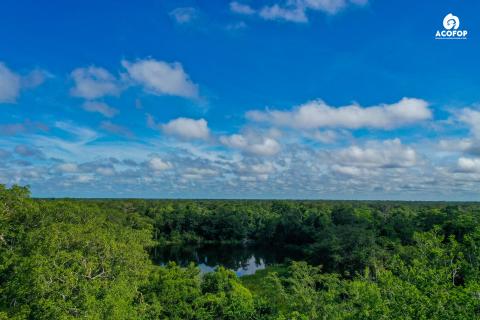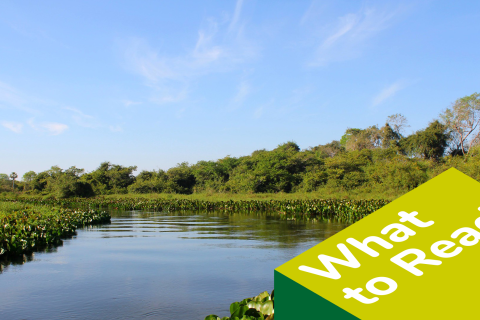How global climate initiatives can risk Indigenous women’s land rights
Recognizing Indigenous lands is important to achieving forest and biodiversity targets and mitigation goals. This is directly acknowledged in initiatives like the Global Biodiversity Framework’s 30x30 Target, Reducing Emissions from Deforestation and Forest Degradation in Developing Countries (REDD+) and Net Zero by 2050.
However, the actions necessary to achieve these targets can sometimes result in pressure and infringement on Indigenous and local land tenure systems that are already insecure due to lack of formal recognition and communities’ weak participation in decision-making related to climate initiatives. These pressures are experienced differently by women and men because of social, economic and political dynamics that influence land tenure and community governance systems. Failure to account for gender when implementing climate initiatives can risk eroding the traditional land entitlements of women and trigger additional negative impacts.
Beyond land tenure, youth land rights fosters socioeconomic development
Africa is the youngest continent in the world, with a median age of around 20. This rising generation of youth presents an enormous opportunity for socio-economic development. But for Africa’s young people to unlock their full potential, they need full enjoyment of land rights – a cornerstone for economic opportunity and social empowerment.
Standing at the Entrance to Chiribiquete
An Indigenous community in the Colombian Amazon learns basic land surveying to fix the errors of the past.
Webinar recap - Navigating Loss and Damage : A Path to Justice for Indigenous Peoples
Under the umbrella of the Land Dialogues series, the last webinar of this year’s series “Navigating Loss and Damage : A Path to Justice for Indigenous Peoples” took place on December 5th, 2024. The webinar drew in a little over 250 participants. The series is organized by a consortium of organizations, including the Land Portal Foundation, the Ford Foundation and the Tenure Facility and this particular webinar was
Webinar recap: land rights and critical minerals
Transforming finance for sustainable development: Rethinking Official Development Assistance for Indigenous Peoples and Local Communities
On November 27, 2024, the Global Donor Working Group on Land convened a pivotal session as part of the Global Donor Platform for Rural Development Annual General Assembly (AGA). Under the theme “Redefining and Enhancing the Quality of Finance for Sustainable Development,” the event focused on optimizing Official Development Assistance (ODA) to address the needs and rights of Indigenous Peoples and Local Communities (IPLCs). The session spotlighted practical approaches to improving the inclusivity, efficiency, and impact of development finance amidst intensifying global crises.
Protecting Biodiversity Hinges on Securing Indigenous and Community Land Rights
In 2022, countries reached a historic agreement to halt biodiversity loss by conserving at least 30% of land and water by 2030. This marked a critical step toward protecting the world's precious remaining species and ecosystems. But that's not all: The Global Biodiversity Framework, as it's known, also explicitly calls on countries to recognize and uphold Indigenous Peoples and local communities' rights in their conservation strategies.
Bridging the Gap: Empowering Indigenous Communities Through Direct Climate Finance
UN General Comment No. 26/2022: (Re-)positioning corruption as a land rights concern
Current global developments in the land and human rights spheres show a progressive shift to focus on previously ‘unpopular’ subjects like corruption. The most recent milestone in this regard was the adoption of a General Comment on land and economic, social, and cultural rights (E/C.12/GC/26) by the United Nations Committee on Economic, Social, and Cultural Rights (UN CESCR) in December 2022.
Protecting the Roots of a Sacred Tree
With USAID support, an Afro-Colombian community received a collective land title, guaranteeing ownership of their traditional lands.












